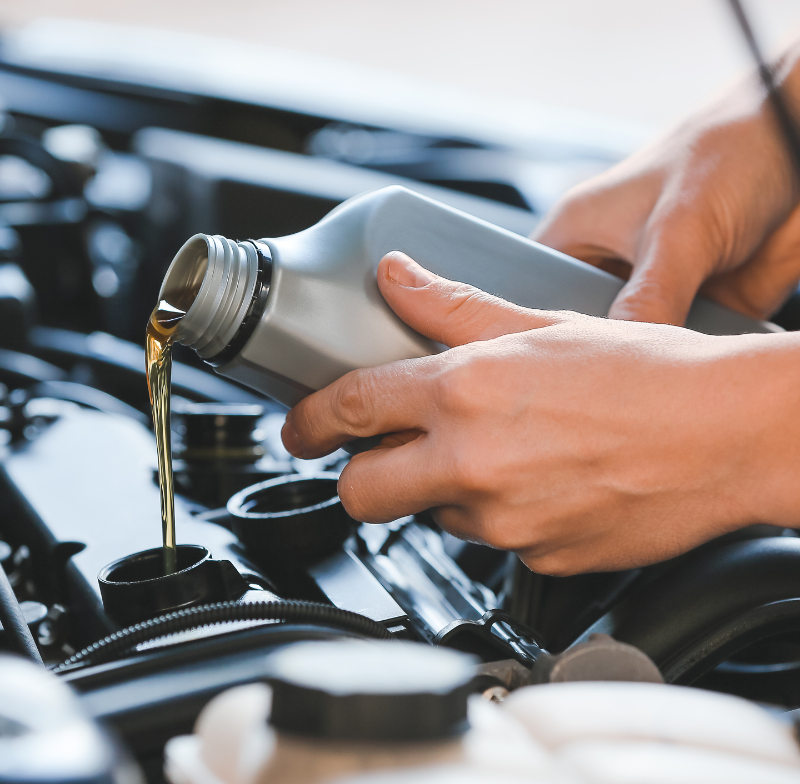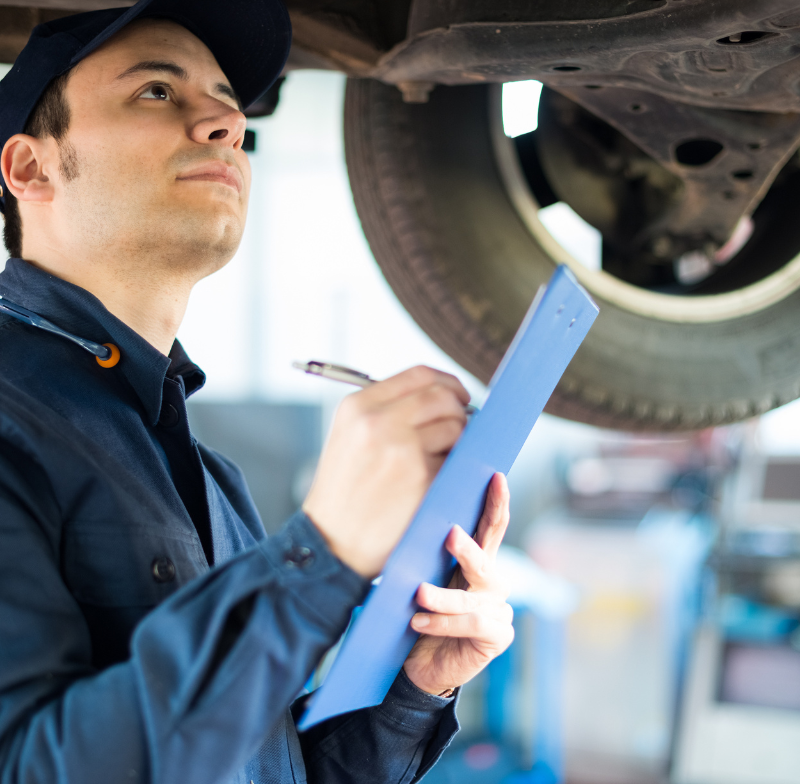Owning a car in the UK is both a privilege and a responsibility. Regular car maintenance is not just about ensuring the longevity of your vehicle; it’s also about keeping yourself and others safe on the road. From the bustling streets of London to the winding roads of the Scottish Highlands, understanding the basics of car upkeep can make all the difference. Whether you’re a seasoned driver or a new car owner, this guide provides essential car maintenance tips to help keep your vehicle running smoothly, reduce repair costs, and enhance its resale value.
Oil
One of the most critical aspects of car maintenance is checking the oil. Engine oil is the lifeblood of your car, ensuring the engine runs smoothly and efficiently. To check your oil, ensure the car is on a level surface, turn off the engine, and let it cool. Remove the dipstick, wipe it clean, reinsert it, and then check the oil level. If it’s low, top it up with the correct grade specified in your car’s manual. Regularly changing your oil, typically every 5,000 to 10,000 miles depending on your vehicle, is equally important to prevent wear and tear on engine components.
Tyres
Another essential car maintenance tip is inspecting the tyres. Tyres are your vehicle’s point of contact with the road, and their condition directly affects safety and fuel efficiency. In the UK, the legal minimum tyre tread depth is 1.6mm, but replacing them at 3mm is advisable for optimal performance. Use a tread depth gauge or the edge of a 20p coin to check if your tyres meet the required standard. Additionally, maintain the correct tyre pressure as specified in your car’s handbook, which can usually be done at petrol stations equipped with air pumps. Properly inflated tyres ensure better fuel efficiency, smoother rides, and reduced risk of blowouts.
Brakes
Brakes are another critical component of car maintenance. Faulty brakes can lead to dangerous situations, so it’s vital to regularly inspect them. Listen for unusual noises such as squeaking or grinding, which can indicate worn brake pads. If the car pulls to one side when braking, this could signal uneven wear or a more significant issue. It’s essential to have your brakes inspected by a professional if you notice these signs. Regular brake fluid checks and replacements, typically every two years, can also help maintain your braking system’s efficiency.
Windshield
Windshield wipers and washer fluid often go unnoticed until they fail, but they’re crucial for visibility, especially during the UK’s notoriously rainy weather. Inspect your wipers regularly for cracks or damage and replace them annually or when they start streaking. Keep your washer fluid topped up with a mix of water and a suitable cleaning solution to ensure your windshield remains clear of dirt and grime. This is particularly important in winter when road salt and debris can quickly obscure your view.
Battery
Battery maintenance is another key area often overlooked until the car fails to start. Modern car batteries typically last between three to five years, but it’s essential to check for signs of wear or corrosion. Clean the terminals and ensure they’re securely fastened. If your battery shows signs of sluggishness, especially in colder months, it might be time to replace it. Many garages offer free battery checks, making it easier to assess its condition.
Radiator
Another essential car maintenance tip is paying attention to your car’s cooling system. The radiator and coolant work together to prevent the engine from overheating. Regularly check the coolant level and top it up if necessary, using the correct type specified in your vehicle’s manual. Also, inspect the radiator and hoses for leaks or damage. Flushing the cooling system and replacing the coolant every two to five years, depending on your car, is crucial for preventing costly repairs.
Lights
Lights play a vital role in ensuring visibility and communication with other road users. Regularly inspect all your car’s lights, including headlights, brake lights, indicators, and fog lights. Replace any burnt-out bulbs promptly, as driving with faulty lights is not only unsafe but also illegal in the UK. Keep the lenses clean to ensure maximum brightness, especially during winter months when grime can quickly accumulate.
Services
Regular servicing is one of the most effective ways to maintain your car’s health. While it may seem like an additional expense, servicing can save you money in the long run by catching potential issues before they escalate. In the UK, adhering to your vehicle’s service schedule is essential, and many manufacturers recommend an annual service or one every 12,000 miles, whichever comes first. During a service, professionals will check key components such as the engine, brakes, and suspension, ensuring everything is in optimal condition.
Fluids
Monitoring fluid levels is another essential car maintenance tip. Beyond oil and coolant, ensure you regularly check other fluids such as brake fluid, transmission fluid, and power steering fluid. Low or dirty fluids can lead to severe mechanical problems, so it’s vital to keep them at the recommended levels. Consult your vehicle’s manual for guidance on checking and replacing these fluids.
Air Con
The UK’s diverse weather conditions mean your car’s climate control system is often in use, whether for heating in winter or air conditioning in summer. Regularly servicing your air conditioning system ensures it remains efficient and prevents the build-up of bacteria, which can cause unpleasant odours. A simple way to maintain the system is to run it for a few minutes every week, even during colder months, to keep the components lubricated and functional.
Warning Signs
Paying attention to unusual noises and warning lights can save you from costly repairs. If your car starts making unfamiliar sounds or a warning light illuminates on the dashboard, don’t ignore it. Investigate the issue promptly, either by consulting your manual or visiting a mechanic. Many modern cars are equipped with onboard diagnostics systems, which can provide insights into the problem, making it easier to address.
Seasonal Checks
Seasonal checks are another vital aspect of car maintenance. The UK’s weather can be unpredictable, so prepare your car for different seasons. In winter, check your antifreeze levels, consider switching to winter tyres for better grip on icy roads, and keep an emergency kit in the car. In summer, ensure your air conditioning is functioning correctly, and check your tyres for signs of heat damage.
Body Work
Maintaining a clean car is not just about aesthetics; it also protects the vehicle’s bodywork and interior. Regular washing and waxing prevent rust and corrosion caused by road salt and grime. Clean the interior regularly to avoid wear and tear on seats and carpets. Pay special attention to areas prone to dirt accumulation, such as wheel arches and undercarriage, especially during winter months.
Keep Records
Documenting your car’s maintenance is an often-overlooked yet essential car maintenance tip. Keep a record of all services, repairs, and replacements. This not only helps you track your car’s condition but also increases its resale value. Prospective buyers are more likely to purchase a vehicle with a comprehensive maintenance history.
Driving Habits
Finally, adopt good driving habits to minimise wear and tear on your vehicle. Accelerate smoothly, avoid harsh braking, and shift gears appropriately to prevent unnecessary strain on the engine and transmission. Regularly listening to your car and being mindful of how it feels can help you detect potential issues early.
In conclusion, following these essential car maintenance tips can help UK drivers ensure their vehicles remain reliable and safe on the road. Regular checks, timely servicing, and good driving habits are the pillars of effective car care. By investing time and effort into maintaining your car, you not only enhance its performance and lifespan but also contribute to safer roads for everyone. Whether you’re preparing for a long journey or tackling daily commutes, keeping your car in top condition is a responsibility every driver should embrace.
Featured Photo by Trace Constant
Discover more from Beardy Blogger
Subscribe to get the latest posts sent to your email.




Leave a Reply